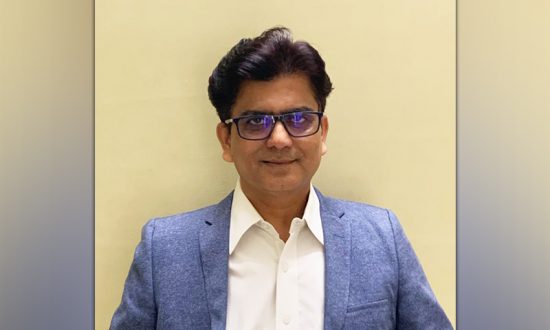Zafar Imam is the CEO at FinShell (an OPPO group company) a leading financial services brand that introduced smartphone-based financial services in India. Zafar has more than two decades of experience in consumer banking and the FinTech space. He has worked with renowned Pvt banks, MNCs and NBFC. He served at Axis Bank for more than 13 years and worked in different roles in building the consumer finance business. Along with his immense industry experience, a father of 2, Zafar brings his patience, maturity and strategy skills on the table. His interests include cooking, music and reading. He is a people’s person and believes in investing in people as that goes a long way. With Zafar as the Chief Business Officer, FinShell has witnessed exponential progress. The company has been able to launch five product lines within 12 months – personal loans, channel finance, mutual funds, UPI & Insurance.
In 2020, the COVID-19 outbreak took the entire world with surprise. Ever since its emergence, we have had to deal with the double-edged sword called COVID-19. On one hand, there have been lay-offs and pay cuts across industries and market segments. On the other hand, there has been an additional financial burden of healthcare and COVID-19-related accessories such as masks and sanitisers.
So, let us quickly have a look at the top-five personal finance concerns during the pandemic and how they can be addressed:
The Fear of Life:
So far, the COVID-19 outbreak has affected more than 17 crore people globally with a death toll of more than 35.4 lakhs. Considering the trendline, these figures are far from stopping at these levels. The need of the hour is to protect our loved ones from the pandemic to the very extent possible. While wearing masks even at homes and healthy habits should become a norm, everyone must further be protected with relevant life and health insurance schemes. Doing so will minimize the financial burden on families during the times of unexpected events.
The Value of Owning Critical Assets:
The pandemic has created a unique situation wherein new financial exigencies have to be met while also managing the previously owned assets. At times like this, value of critical assets such as houses, cars, etc. also drops, which decreases their ability to raise funds via collateral-based loans. At the same time, they attract recurring maintenance charges and taxes. You should conduct an in-depth assessment of all of your assets and your overall liability in the short term as well as the long haul. You must further factor in the COVID-19-related outgoes in your assessment.
Loans and EMIs:
People having existing credit accounts should service them with intense care. So, keep paying your loan EMIs, interests, credit card outstanding amount, and utility bills. It will ensure that the pandemic does not negatively impact your credit score, thereby keeping the option of a quick loan available.
If you think that you will not be able to meet any payment then get your loan restructured. In case of credit cards, paying the minimum due will ensure that your credit score does not dip due to a missed payment. However, also bear in mind that this ‘minimum due’ generally goes towards your interest component and does not decrease your overall outstanding amount. It will be a better idea to convert the sum into a personal loan as the interest rate of credit cards is exorbitant.
Cash in Hand:
The COVID-19 outbreak requires you to have sufficient cash in hand to deal with any exigencies that comes knocking on your door. You must always ensure that you have a financial buffer available to deal with such exigencies – even if you have insurances in place for the majority of them! Doing so will ensure that you can deal with emergency situations better. You must increase your saving for the rainy days and start following the practice if you haven’t already.
The Fear of Job Loss:
Any impending downsizing drive, job loss, or pay cut is a direct threat to your financial stability. You must keep a track of the industry developments and that of your organization. By doing so, you can gain a considerable edge by pre-emptively mitigating any concerns. You should further enroll yourself in upskilling programs that are specific to your industry, especially while having a futuristic outlook.
The pandemic has come across as a wake-up call for everyone to adopt healthy personal finance practices. Just adopt these easy steps to ensure the same.


